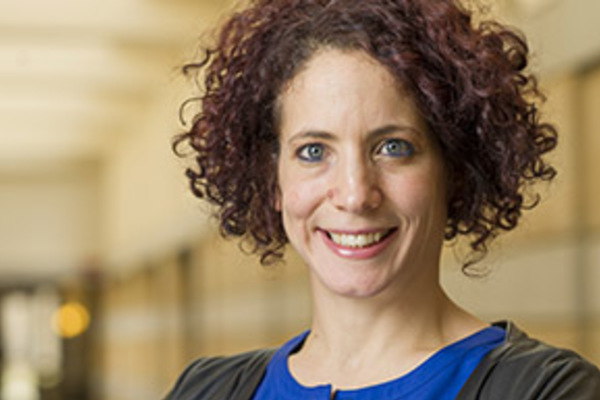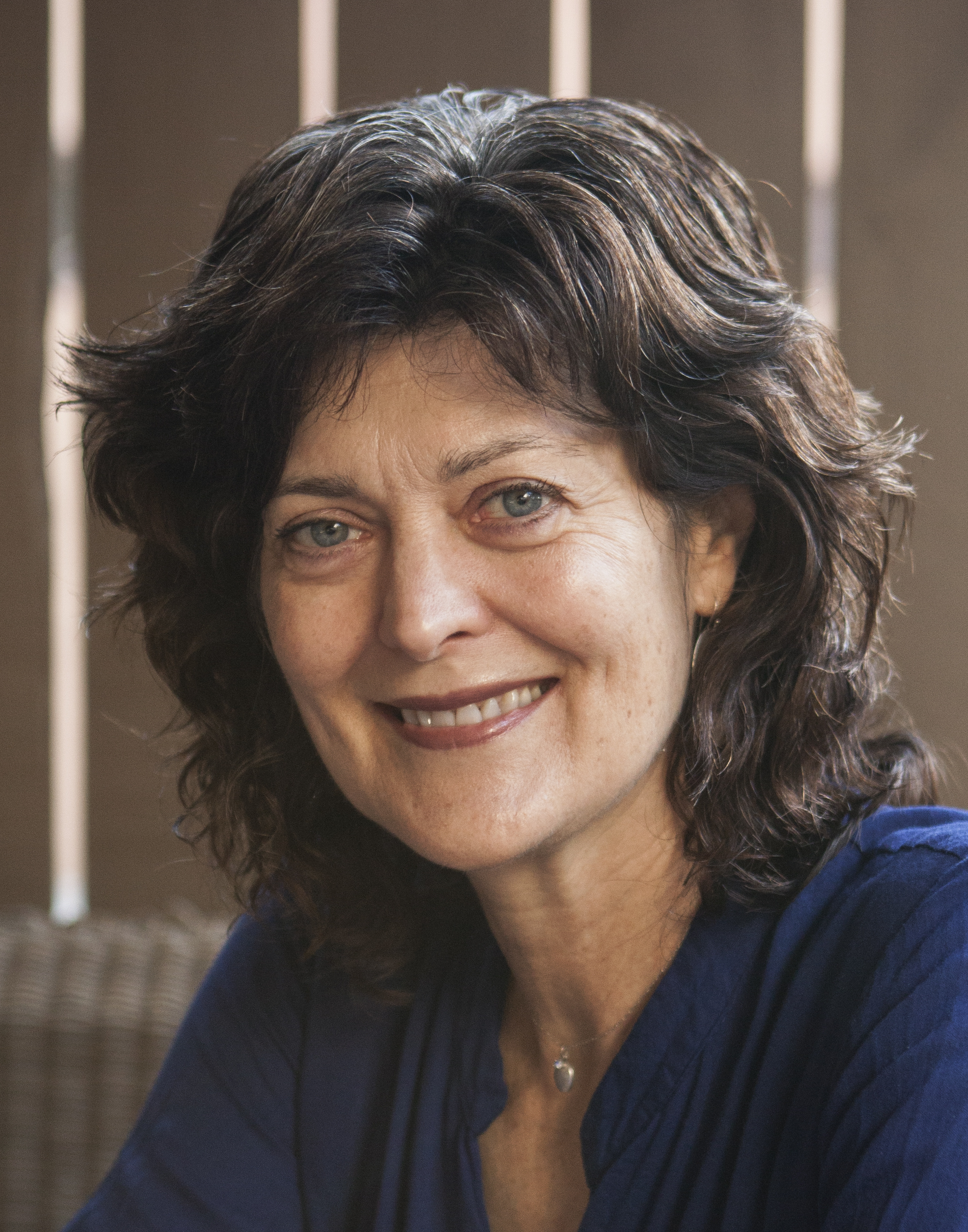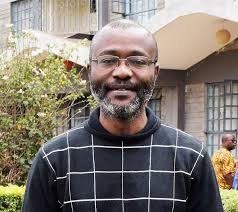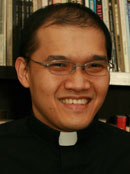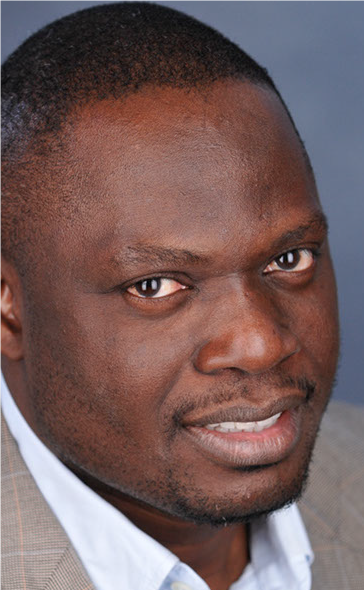Professor Cecelia Lynch (University of California, Irvine, and a Contending Modernities’ Luce Visiting Fellow at the Kroc Institute) delivered a talk on March 31st, 2016 titled “The Popular Casuistry of Religious Humanitarians: Christian and Islamic Ethics in Action.” The lecture introduced debates concerning the ethics of NGOs, foregrounded concerns about power, knowledge production, and paternalism, and brought attention to the complexities of historical memories by paying special attention to the enduring legacy of colonialism in Africa.
On the basis of extensive interviews and observations conducted over the last ten years and across Sub-Saharan Africa and Europe, Lynch has intervened in debates that seek to understand contemporary religious humanitarian ethics as it relates to decolonization, the rise of neoliberalism, and the war on terrorism. In framing her research, Lynch is acutely aware of her “outsider” status and location. Indeed, she has focused in this research on the role of the “outsider”—whether this is active intervener (peacebuilder, development worker) or the scholar. Moreover, the colonial past is the very present of sub-Saharan Africa, which Lynch stressed is often considered as “a site to be acted upon by others.” Mindful of these dynamics, Lynch has cultivated a tone of humility and concern about the lingering and transmuted forces of colonialism, neoliberalism, and African orientalism.
Lynch first situated herself vis-à-vis the emerging literature on religion and humanitarianism in IR. She agreed, to a certain extent, with Alastair Ager and Joey Ager who have argued against a simplistic and instrumental explanation of the role of faith-based groups in humanitarianism and have challenged the secularist bias of humanitarian practice which has exhibited an instrumental approach toward religion and faith communities. Like Ager & Ager and other scholars at the Kroc Institute and elsewhere who take religion seriously and on its own terms, Lynch suggested that substantively understanding religious ethics is not an effort unrelated to analyzing the avenues for and limitations of humanitarianism and peacebuilding.
She likewise concurred with Severine Autesserre’s thesis in Peaceland (2014) that “top down solutions” of international interveners’ praxis reinforce isolation from local populations, entrench ignorance about them and their histories, and reinforce hierarchies through attempts at imposing peacebuilding solutions. However, Lynch does disagree with Autesserre’s downplaying of (neo)liberalism as a major factor in such detrimental paternalism. Indeed, Lynch has employed a Foucauldian framework elsewhere to critique neoliberal discourses and their ramifications for framing humanitarianism.
Though departing from Autesserre, Lynch echoed the insights of Lisa Malkki who, on the basis of an ethnographic study of the Finnish Red Cross in Finland, turned the focus from aid recipients to humanitarians themselves and their neediness and loneliness. According to Malkki, these dynamics are embedded within and symptomatic of her understanding of Finnish societal problems. Lynch too called for turning the lens inward to examine historical trajectories and genealogies of both external interveners and transnational religious traditions (of Christianity and Islam) vis-avis African religions, practices, and customs (avoiding both exoticizing and reifying what is meant by ‘African”).
Lynch also concured with Marie Juul Petersen who has examined transnational Islamic NGOs and the challenges their histories present, especially as they need to navigate the discourses informing the war on terrorism. Lynch affirmed that her Muslim interlocutors tend to be increasingly concerned themselves with “extremists” or “reformists” especially in West Africa.
Hence, in conversation with this emerging literature, Lynch frames her own approach as a “neo-Weberian” in that it recognizes the dynamisms of religious ethics and renders religious beliefs as constitutive of broader economic and political processes. This is a highly embodied and embedded approach to religion and to the effort to understand religious actors. It is this neo-Weberian lens that leads Lynch to her understanding of religious actors are engaged in what she terms “popular casuistry.” Popular casuistry refers to how everyday religious actors make sense of their situations, selectively retrieve from precedents and thus selectively and contextually interpret the requirements/prescriptions of their traditions to determine what kinds of action are ethical in particular circumstances.
In examining humanitarianism in West and East Africa, Lynch’s neo-Weberian approach propels us to examine how contexts shape certain actions and claims and how religious actors authorize such actions and claims. An enduring question, however, is whether such actors also challenge the underpinning discourses shaping and informing their popular casuistry.
Lynch identified specifically the need to examine the histories of the spread of Islam and Christianity, colonialism and postcolonial struggles, the emergence of neoliberalism, and the war on terrorism as crucial factors intersecting with patterns of popular casuistry in African contexts, including syncretic praxis. Lynch illumined the continuous negotiations of African and “imported” religions (Islam, Christianity and the histories of their importation) in lived daily life of her interlocutors in order to foreground the need to always examine how our own traditions and identities are syncretic and “imbricated with those of others.”
For example, popular casuistry for one young West-African Christian woman working in East Africa with a multi-country student Christian organization entails a systemic examination of “empire” which she understands as “the forces operating today within the global economic context and also political context.” If the “common good” entails the reduction of poverty and conflict, the “popular casuistry,” Lynch stressed, demands educating “youth on the structures of economic power, which connects ‘root causes’ to broader issues.” Yet for others, it is precisely Christianity that is implicated in and linked to postcolonial power structures.
In addition to attending to the ways that actors challenge and redeploy the discourses underpinning popular casuistry, analysts need to recognize how neoliberalism shapes humanitarianism, including as practiced and resisted by religious actors through popular casuistry.
One such dynamic that Lynch identifies in a related forthcoming coauthored article (with Tanya Schwartz) is the phenomenon of “donor proselytism” which, according to her extensive interviews, is interlaced with some religious actors’ concern with the “audit culture” and “audit dependency” cycle. Accordingly, “some organizations—almost always transnational ones—can access donor funding, can access the U.N. and its agencies, etc,. while local organizations-including religious actors—find it much more difficult to do so,” Lynch underscores.
Lynch described a most acute story concerning Somali groups trying to break into the NGO and FBO mold. She suggested that the level of “donor proselytism” such groups confront relates not only to the failure to substantively engage “the local” generically but specifically “the Islamic local.” Lynch’s interviews with Somali representatives in Kenya demonstrate “a constitutive relationship” between being local and Islamic and how this combination complicates access to transnational donors and shapes the way in which religious identities are employed in seeking such access. Hence, the discourse of the war on terrorism, in tandem with neoliberalism, shapes popular casuistry.
The war on terrorism has impacted humanitarian action in East and West Africa, Lynch explained, in two general ways. First, it increased mistrust of Muslims by Christians and, second, it deepened the worry by Muslims about the status of “reformists.”
Indeed, neoliberalism and the war on terrorism constitute critical factors in shaping popular casuistry of religious humanitarians, including under the frame of Muslim organizations that “have taken on Western, secular methodology and terminology-but had not really looked at religious equivalent in terms of ethics and beliefs.” Hence, Lynch underscored that an actual effort on the part of transnational Muslim organizations to engage Islamic ethics explicitly is exciting but not sufficient if such efforts do not also include paying “attention to embedded histories.”
Lynch concluded her talk with a discussion of how the critique of neoliberalism and its intersection with the war on terrorism as well as attention to the enduring legacy of colonialism and missionary impositions challenge the concept of accompaniment that often animates humanitarianism and development efforts. She rightly asked how we can “foster research and practice that incorporates this kind of ongoing reflexivity?”
Lynch’s research is to be celebrated for the ways it foregrounds and explicates the importance of interrogating the discursive formations that inform religious ethics and popular casuistry. Her neo-Weberian framing allows for an elastic lens through which to examine the intersections of neoliberal and (African) orientalist discourses in the diffusion and praxis of the technocratic donor-driven apparatus of humanitarianism and development work. Popular casuistry, on both the levels of emic and etic actors, is profoundly influenced by the dominant and dominating economic logic. Her concern with “donor proselytism” is relatedly crucial for nesting any effort to analyze humanitarianism and development (explicitly secular as well as explicitly religious) within the deep and enduring histories of colonialism and missionary expansions. This neo-Weberian approach also brings into sharp relief the demand to understand religiosity contextually, historically, and within the various socioeconomic and political forces without falling into reductive explanatory frameworks.

